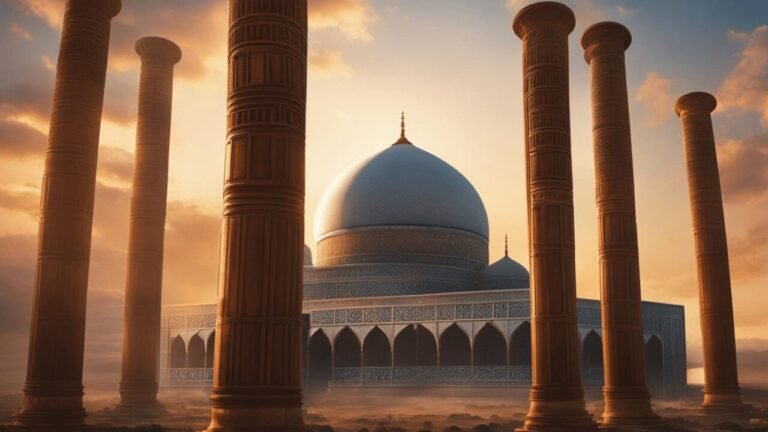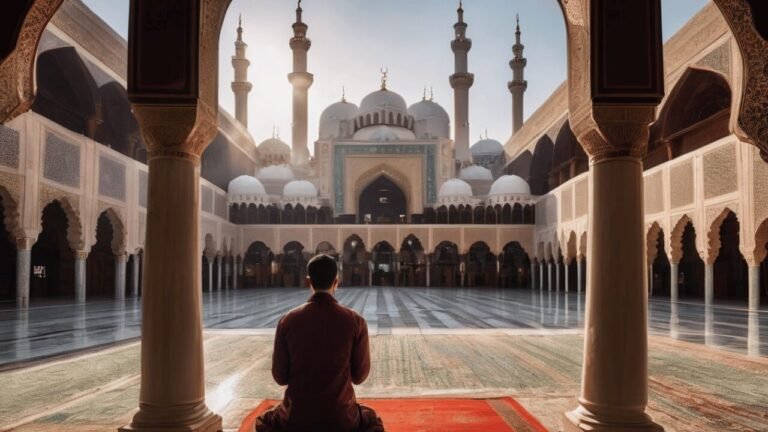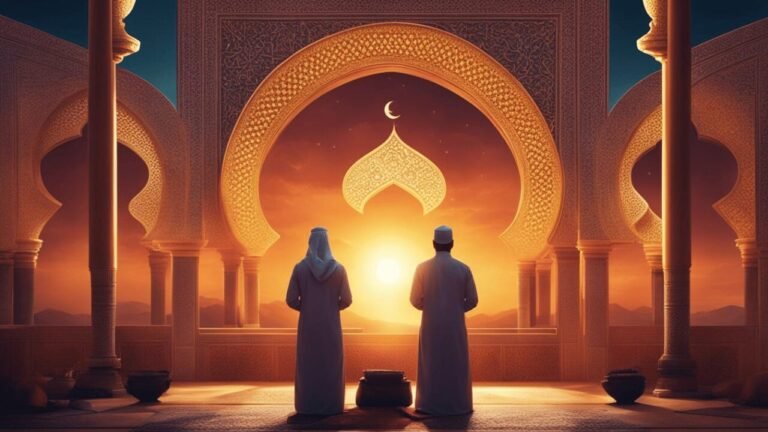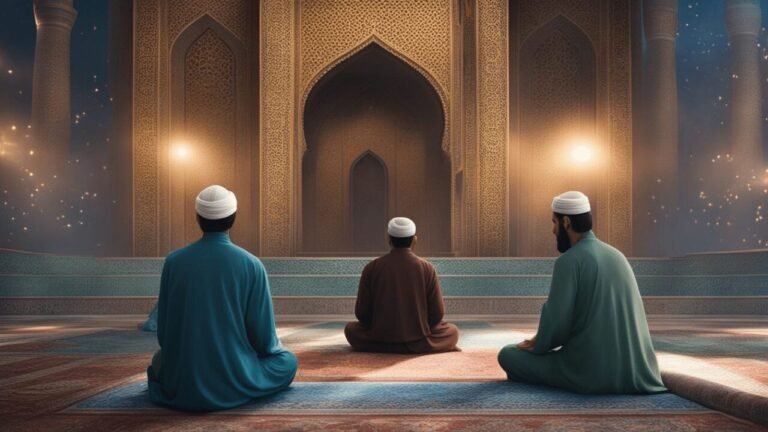This article will provide you with an introduction to Islam. Islam is a major monotheistic religion—followers of one God. Its followers, called Muslims, believe that Islam is the last revealed religion sent by God for the guidance of humankind. They think only one God exists—the universe’s unique and incomparable creator, sustainer, and restorer. They also believe that Muhammad is the seal of the prophets and the last Prophet sent by God.
Table of Contents
An Introduction to Islam: Brief History

Islam began in Arabia in the 7th century CE [1]. The Arabian Peninsula was, at that time, inhabited by many Arab tribes who were polytheists—believers in multiple gods. Muhammad was born into one of these tribes, the Quraysh, in 570 CE. At age 40, he began to have visionary experiences in which he was contacted by the angel Gabriel and given revelations from God. Muhammad began to preach these revelations, which were collected into the Quran.
In 622 CE, Muhammad and his followers emigrated from Mecca to Medina to flee from persecution. This event, known as the hijrah, marks the start of the Islamic calendar. In Medina, Muhammad received teachings and revelations from God to share with his followers. He also established the first Muslim community—a city based on Islamic law and principles.
After Muhammad died in 632 CE, his followers expanded Islam throughout Arabia and beyond. By 750 CE, Islam had spread throughout North Africa, Spain, India, Central Asia, and China. Today, Islam is the second largest religion in the world, with over 1.6 billion Muslims worldwide.
Founding Figures of Islam
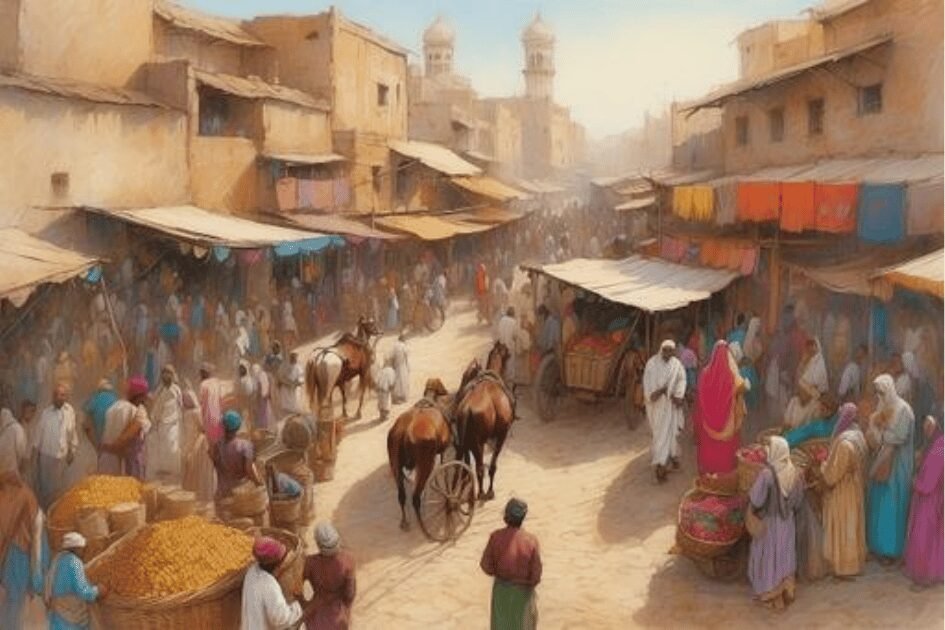
Islam’s three most influential figures are the Prophet Muhammad, his companion Abu Bakr, and Ali ibn Abi Talib.
The Prophet Muhammad is the founder of Islam and the most important figure in the religion. He is the one who received the revelations from God that were later compiled into the Quran. He is also the one who preached and taught the Islamic faith to the people.
Abu Bakr was the Prophet’s first companion and Islam’s first caliph. He was a close friend and confidant of the Prophet and was instrumental in spreading the faith.
Ali ibn Abi Talib was the cousin and son-in-law of the Prophet Muhammad. He was also the fourth caliph of Islam. Ali was a close companion of the Prophet Muhammad and was known for his wisdom and knowledge of the Islamic faith.
Major Texts and Teachings of Islam

Islam is a monotheistic religion that believes in one all-powerful God. The Quran, revealed to the Prophet Muhammad, is its primary source of teachings. The Hadith and Sira are also crucial texts. Islam emphasizes the importance of worshiping one God and treating everyone with compassion and respect.
Principles of Islamic Faith
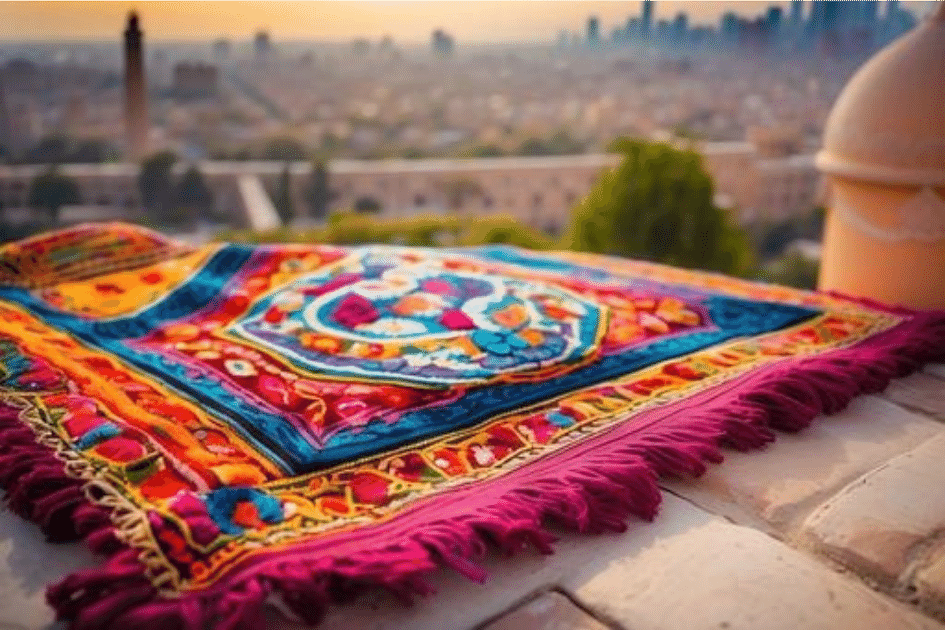
The basic principles of the Islamic faith are very simple and straightforward. Islam is based on the belief in one God, the Creator and Sustainer of the universe. Muslims believe in all the prophets and messengers of God and His books. They believe in the Angels of God and the Day of Judgment. Muslims also believe in the divine destiny of human beings.
These are the basic principles of the Islamic faith. Muslims are required to follow these principles in their lives.
Practice of Islam
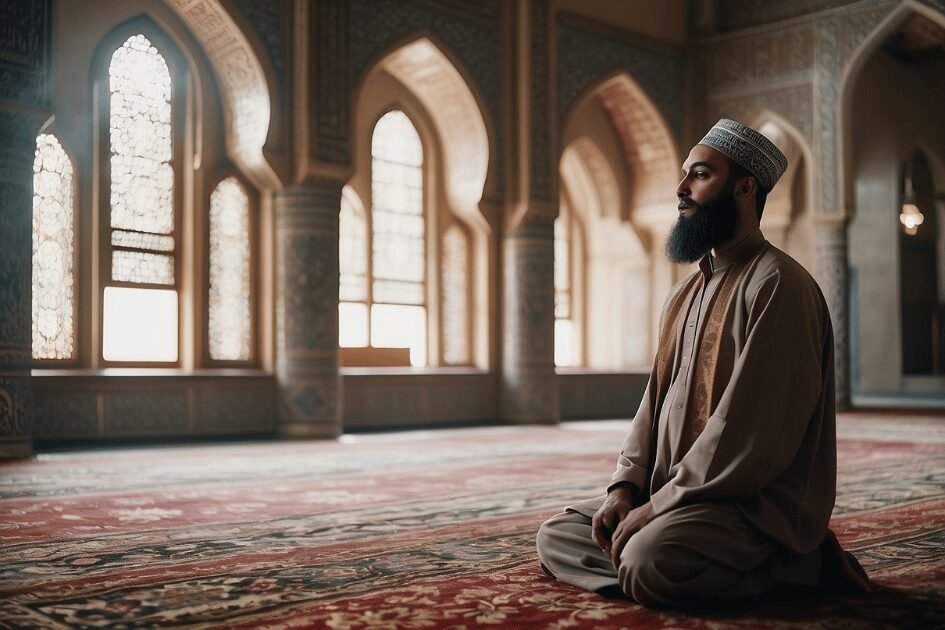
Islam is one of the world’s largest religions, with over 1.6 billion followers worldwide. It is also one of the fastest-growing religions, with the number of Muslims increasing by about 1.5% per year.
The practice of Islam revolves around the Five Pillars, which are the five basic duties that every Muslim must perform. These duties are:
- Shahadah: This is the declaration of faith, and it entails believing in the oneness of Allah and in Muhammad as His final Prophet.
- Salah: Muslims must perform the five daily prayers.
- Zakat: This is the giving of alms or charitable donations, which is 2.5% of their wealth.
- Sawm: This is fasting during the month of Ramadan.
- Hajj: This is the pilgrimage to Mecca that every Muslim must perform at least once in their lifetime.

Islam is a religion of peace and tolerance. Muslims are required to treat others with respect and compassion, regardless of their religion or beliefs. Muslims are also required to stand up for justice, even if it means going against their own interests.
Women and Islam

Islam has regulations regarding gender roles and sexuality. These rules are based on the Quran and the Hadith (sayings of the Prophet Muhammad). Muslims believe that men and women are equal before God but that they have different roles to play in society.
Women in Islam are expected to dress modestly, behave appropriately in public, and maintain their chastity. They are also responsible for educating their children and caring for their homes. Muslims believe these responsibilities are a sacred trust from God and should be taken seriously.
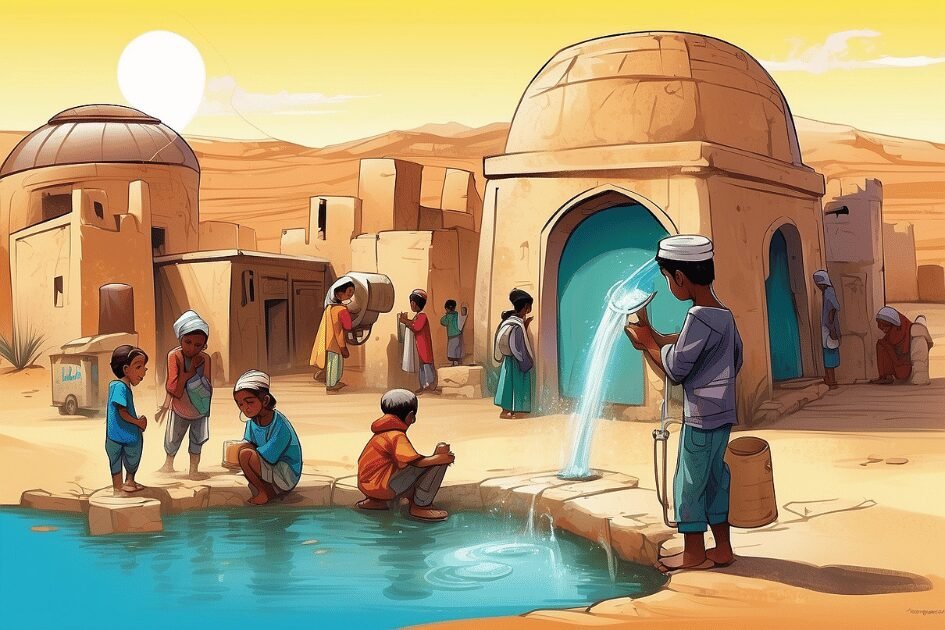
Islam gives women a great deal of responsibility. Muslim women are expected to be good mothers, wives, and citizens. They are also expected to uphold the values of their faith. In return, they are given a great deal of respect by their families and their community.
Islamic Holy Places
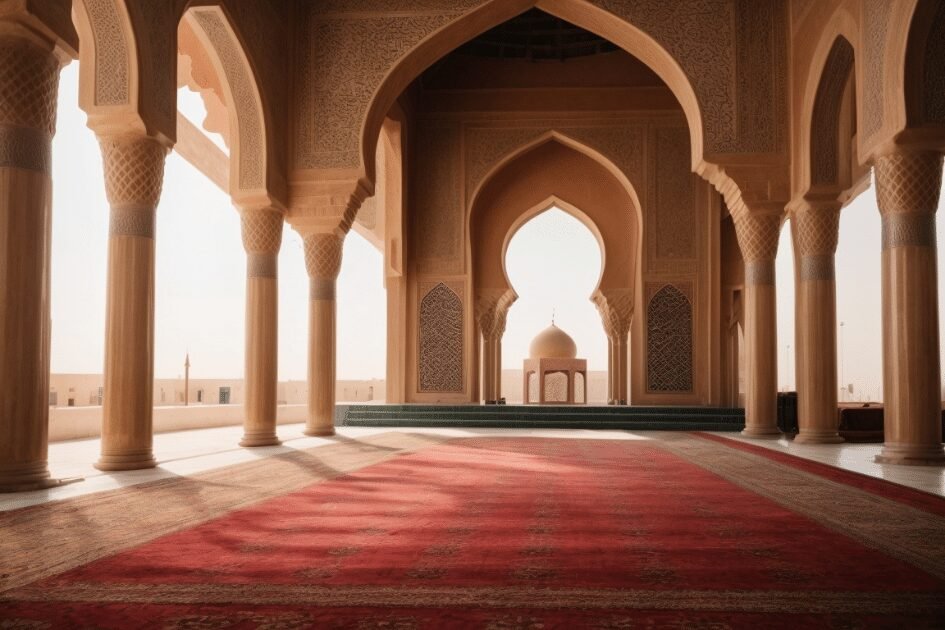
There are many Islamic holy places located throughout the world. The most famous and holiest of these is the city of Mecca in Saudi Arabia, where the Prophet Muhammad was born. Every year, millions of Muslims pilgrimage (or Hajj) to Mecca, one of the Five Pillars of Islam.
In Mecca, there is the Great Mosque of Mecca (or the Masjid al-Haram), which is the largest mosque in the world. This is where the Kaaba, the most sacred site in Islam, is located. The Kaaba is a structure shaped like a cube, which Muslims believe was built by Prophet Abraham and his son Ishmael. Every year, during the Hajj, Muslims circumambulate (walk around) the Kaaba seven times.
Another important Islamic holy site is Medina, which is also in Saudi Arabia. This is where Muhammad lived and where he is buried. The Medina Mosque, or the Masjid al-Nabawi, is the world’s second-largest mosque and one of Islam’s holiest sites.
Interpreting Islamic Beliefs

In Islam, “belief” (Iman) is an act of intellectual assent and a declaration of faith and trust. It is Tableegh (spreading Islamic knowledge) if one believes in and confesses to the truth of Islam. Belief in Islam also requires action; more is needed to accept the tenets of Islam; one must also actively live according to those beliefs.
To read more about faith, check out our articles on the 6 Pillars of Iman.
The Future of Islam
Undoubtedly, Islam is the fastest-growing religion in the world today. In fact, it is projected that Islam will overtake Christianity as the world’s largest religion by the year 2070. But what does this mean for the future of Islam?
Many factors will impact the future of Islam. One of the most important is the increasing number of Muslims who are living in non-Muslim countries. This is creating a more globally connected Muslim community, which is helping to spread the religion to new areas.
Another factor that will impact the future of Islam is the increasing number of young Muslims. This is significant because it is young people who are typically most open to new ideas and change. This means that the future of Islam is likely to be more dynamic and flexible than its past.
Finally, another factor that will impact the future of Islam is the increasing number of women who are choosing to wear the hijab. This is significant because it is a visible sign of Islamic faith, and it is helping to increase awareness of Islam in many countries where it is not currently very prevalent.
Many factors will impact the future of Islam. One of the most important is the increasing number of Muslims who are living in non-Muslim countries. This creates a more globally connected Muslim community, helping spread the religion to new areas.
FAQ
What is a Muslim?
A Muslim is someone who follows Islam. The word “Muslim” comes from “salam,” meaning peace.
What does Islam Mean?
Islam means “submission.” In English, it is often used to refer to the religion of Islam.
What is the Quran?
The Quran is the holy book of Islam. Muslims believe that it is the final revelation of God to humankind.
What is a Hadith?
A hadith is a saying or an act of the Prophet Muhammad recorded in writing.
Who is God in Islam?
God in Islam is known as Allah. Muslims believe that there is one God and that he is perfect. They think he created the universe and is all-powerful and all-knowing.


